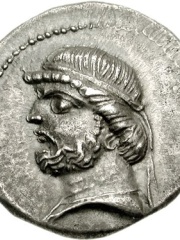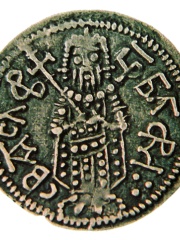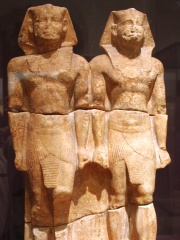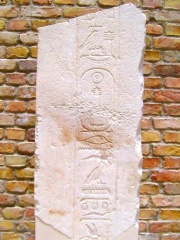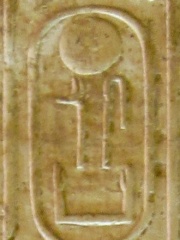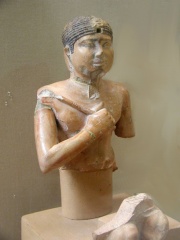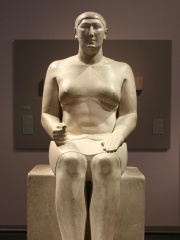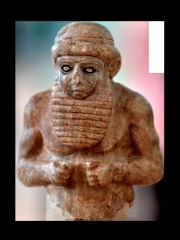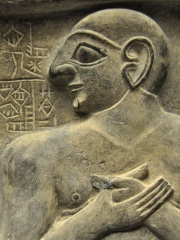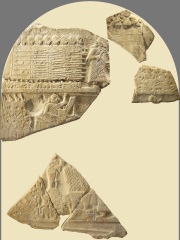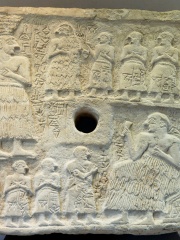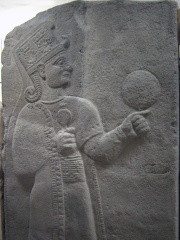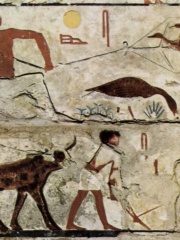Politician
Puabi
2500 BC - today
EN.WIKIPEDIA PAGE VIEWS (PV)
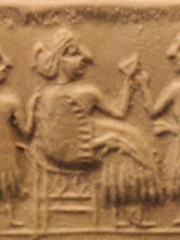
 Puabi
Puabi
Her biography is available in 25 different languages on Wikipedia (up from 24 in 2024). Puabi is the 6,133rd most popular politician (up from 6,361st in 2024).
Memorability Metrics
Page views of Puabi by language
Among Politicians
Among politicians, Puabi ranks 6,133 out of 19,576. Before her are Emperor Daigo, Dominique de Villepin, Phraates II, Duke Mu of Qin, Jeremy Corbyn, and Henri, Count of Paris. After her are Numa Denis Fustel de Coulanges, Theodore Svetoslav of Bulgaria, Ferdinand Albert I, Duke of Brunswick-Wolfenbüttel-Bevern, Jack Kemp, Piero Soderini, and Tudhaliya III.
Most Popular Politicians in Wikipedia
Go to all RankingsEmperor Daigo
885 - 930
HPI: 65.15
Rank: 6,129
Dominique de Villepin
1953 - Present
HPI: 65.15
Rank: 6,130
Phraates II
200 BC - 127 BC
HPI: 65.15
Rank: 6,131
Duke Mu of Qin
650 BC - 621 BC
HPI: 65.15
Rank: 6,132
Jeremy Corbyn
1949 - Present
HPI: 65.15
Rank: 6,133
Henri, Count of Paris
1908 - 1999
HPI: 65.15
Rank: 6,134
Puabi
2500 BC - Present
HPI: 65.14
Rank: 6,135
Numa Denis Fustel de Coulanges
1830 - 1889
HPI: 65.14
Rank: 6,136
Theodore Svetoslav of Bulgaria
1270 - 1322
HPI: 65.14
Rank: 6,137
Ferdinand Albert I, Duke of Brunswick-Wolfenbüttel-Bevern
1636 - 1687
HPI: 65.14
Rank: 6,138
Jack Kemp
1935 - 2009
HPI: 65.14
Rank: 6,139
Piero Soderini
1450 - 1522
HPI: 65.14
Rank: 6,140
Tudhaliya III
1350 BC - 1350 BC
HPI: 65.14
Rank: 6,141
Contemporaries
Among people born in 2500 BC, Puabi ranks 11. Before her are Nyuserre Ini, Djedkare Isesi, Userkare, Neferefre, Hemiunu, and Enmerkar. After her are En-anna-tum I, Eannatum, Khentkaus III, Ur-Nanshe, Kubaba, and Nefermaat.
Others Born in 2500 BC
Go to all RankingsNyuserre Ini
POLITICIAN
2500 BC - 2430 BC
HPI: 68.78
Rank: 5
Djedkare Isesi
POLITICIAN
2500 BC - 2380 BC
HPI: 68.29
Rank: 6
Userkare
NOBLEMAN
2500 BC - 2330 BC
HPI: 68.16
Rank: 7
Neferefre
POLITICIAN
2500 BC - 2458 BC
HPI: 68.07
Rank: 8
Hemiunu
ARCHITECT
2500 BC - 2501 BC
HPI: 67.31
Rank: 9
Enmerkar
POLITICIAN
2500 BC - 3000 BC
HPI: 67.19
Rank: 10
Puabi
POLITICIAN
2500 BC - Present
HPI: 65.14
Rank: 11
En-anna-tum I
POLITICIAN
2500 BC - 2500 BC
HPI: 65.03
Rank: 12
Eannatum
POLITICIAN
2500 BC - 2425 BC
HPI: 64.80
Rank: 13
Khentkaus III
POLITICIAN
2500 BC - 2500 BC
HPI: 64.14
Rank: 14
Ur-Nanshe
ARCHITECT
2500 BC - 2500 BC
HPI: 63.71
Rank: 15
Kubaba
POLITICIAN
2500 BC - 2400 BC
HPI: 63.64
Rank: 16
Nefermaat
ARCHITECT
2500 BC - Present
HPI: 62.87
Rank: 17


